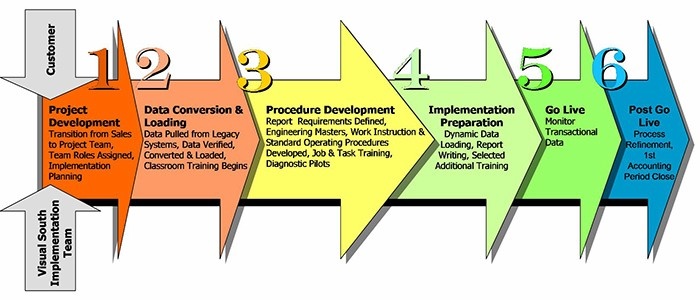ERP implementations need a project leader
For any project to be successful, it requires a leader, and an ERP implementation is no different. Projects involve people who take on roles, responsibilities, tasks, and decisions. They are a true team, and everyone’s actions (or inactions) affect the team and project. The ERP Project Manager (or ERP Implementation Manager) is the leader of this team, and is ultimately responsible for the success or failure of the implementation.














